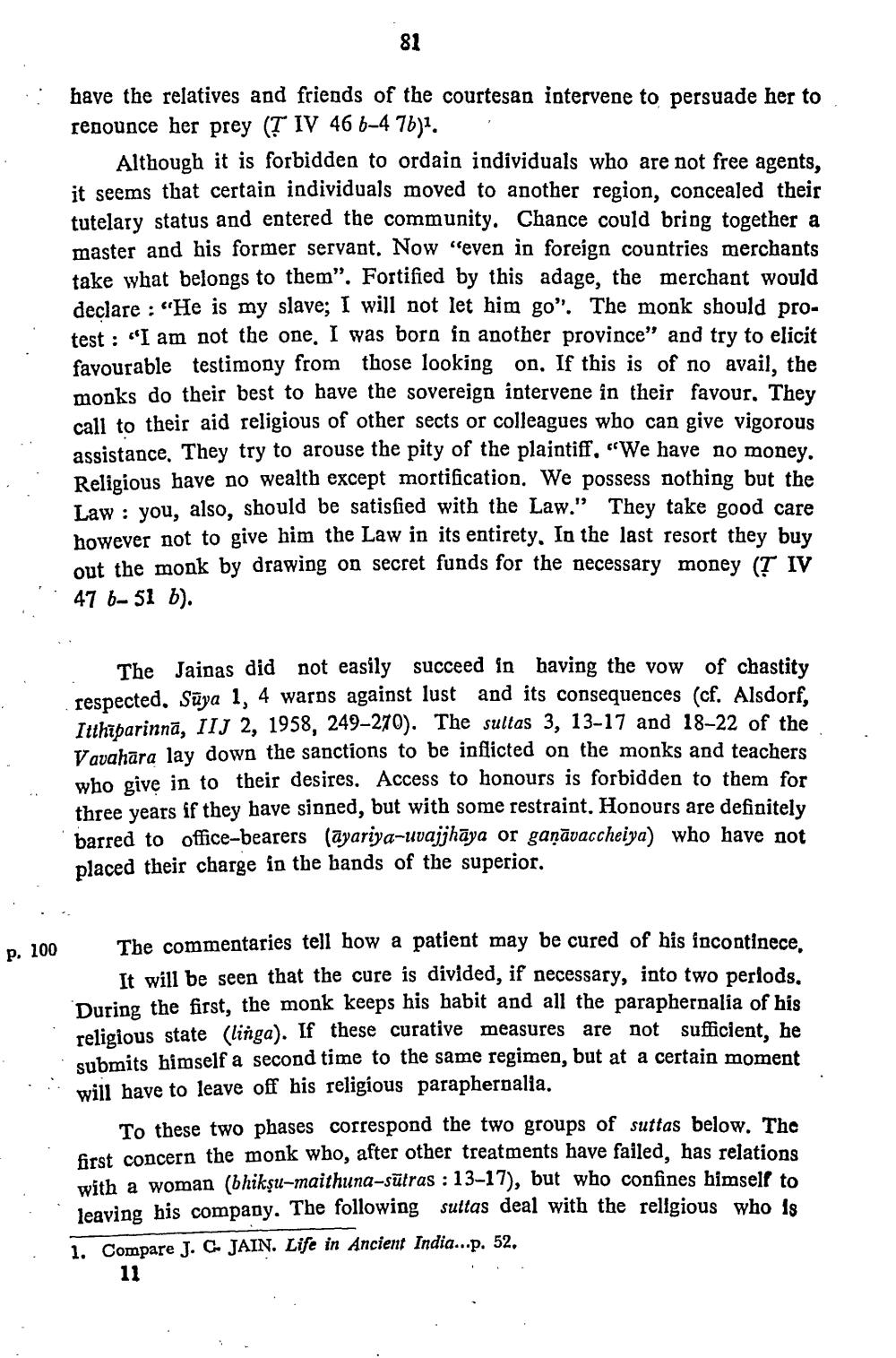________________
have the relatives and friends of the courtesan intervene to persuade her to renounce her prey (T IV 46 6-4 76)?.
Although it is forbidden to ordain individuals who are not free agents, it seems that certain individuals moved to another region, concealed their tutelary status and entered the community. Chance could bring together a master and his former servant. Now "even in foreign countries merchants take what belongs to them". Fortified by this adage, the merchant would declare : «He is my slave; I will not let him go". The monk should protest: "I am not the one. I was born in another province" and try to elicit favourable testimony from those looking on. If this is of no avail, the monks do their best to have the sovereign intervene in their favour. They call to their aid religious of other sects or colleagues who can give vigorous assistance. They try to arouse the pity of the plaintiff, "We have no money. Religious have no wealth except mortification. We possess nothing but the Law : you, also, should be satisfied with the Law." They take good care however not to give him the Law in its entirety. In the last resort they buy out the monk by drawing on secret funds for the necessary money (T IV 47 6-51 b).
The Jainas did not easily succeed in having the vow of chastity respected. Süya 1, 4 warns against lust and its consequences (cf. Alsdorf. Itthibarinnā, IIJ 2, 1958, 249-270). The sultas 3, 13-17 and 18-22 of the Vavahara lay down the sanctions to be inflicted on the monks and teachers who give in to their desires. Access to honours is forbidden to them for three years if they have sinned, but with some restraint. Honours are definitely barred to office-bearers (ayariya-uvajjhāya or gaṇāvaccheiya) who have not placed their charge in the hands of the superior.
p. 100
The commentaries tell how a patient may be cured of his incontinece,
It will be seen that the cure is divided, if necessary, into two periods. During the first, the monk keeps his habit and all the paraphernalia of his religious state (linga). If these curative measures are not sufficient, he submits himself a second time to the same regimen, but at a certain moment will have to leave off his religious paraphernalia.
To these two phases correspond the two groups of suttas below. The first concern the monk who, after other treatments have failed, has relations with a woman (bhikṣu-maithuna-sütras : 13-17), but who confines himself to leaving his company. The following suttas deal with the religious who is 1. Compare J. C. JAIN. Life in Ancient India...p. 52.
11




